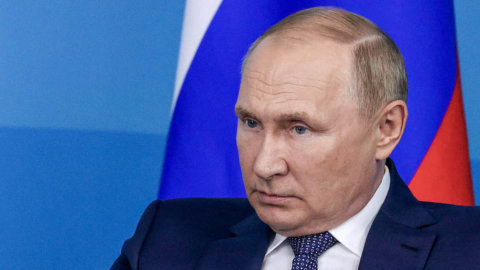Argentina relives the nightmare of the "corralito". Cristina Kirchner's country yesterday decided on a sharp devaluation of the peso, the national currency, which brought back to the markets the fears of a financial crisis in the second most important economy in Latin America. The drop of more than 15% experienced by the Argentine currency in early trading yesterday forced the Central Bank to return to the market to sell dollars, thus limiting the drop at the end of the session to 8% which, in any case, represents the largest loss for the weight on a daily basis since the $95 billion default and steep devaluation of 2002.
Yesterday the Argentine currency exceeded the symbolic threshold of 8 pesos per dollar after breaking through the 7 pesos the day before, a shock for Argentines who in the 90s lived in parity between peso and dollar. The currency hit a daily low of 8,34 pesos to the dollar yesterday before closing at 8,01. The devaluation, the enemy of savers and investors, accumulated in two days, is 13,9% and that of the first three weeks of 2014 is equal to 18,6% against 24% for all of 2013.
The Argentine government, through the premier, Jorge Capitanich, has announced the easing of the restrictions in force for over two years on purchases of foreign currency, i.e. dollars, by private citizens, emphasizing how "the price of the dollar has achieved an acceptable level of convergence with the country's economic policy objectives”. An abrupt change of direction after the administration of President Cristina Kirchner since October 2011 had sparingly rationed the amount of dollars available to individuals and businesses in an attempt to protect the country's international reserves.
After spending more than $4,5 billion in 2013 defending the domestic currency, the central bank stepped in at least $100 million yesterday to cap the peso's slump and the country's international currencies finished the day at a fresh low for more than seven years of 29,3 billion against a peak of 52,6 billion at the beginning of 2011. Since Kirchner decided on an extensive reshuffle, appointing new men to head the Ministry of the Economy and the Central Bank on 18 November last, the peso depreciated by 25%, a world record. Meanwhile, inflation reached 25-30% in Argentina in 2013, according to private estimates (10,9% according to the Government) and is expected to increase further this year. In the month of December alone, again according to private estimates, it could reach 5%.





